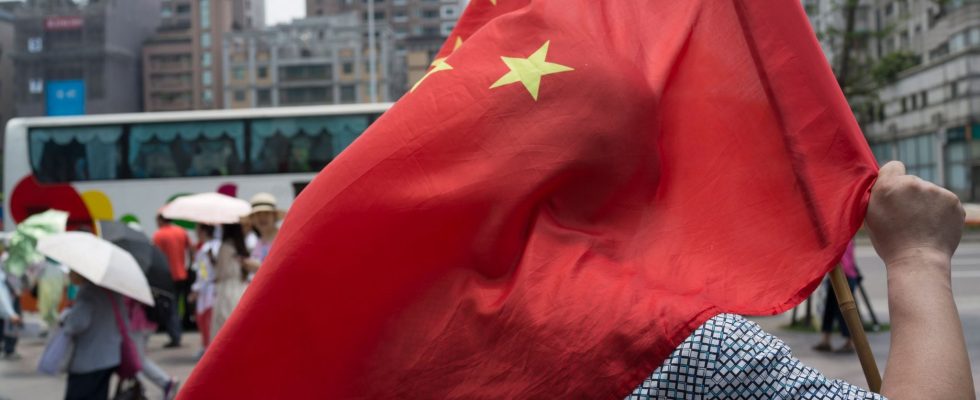Like every year, Xi Jinping addressed his wishes to the population from his office, in front of a large painting of the Great Wall of China. THE Chinese president took the opportunity to issue a new warning to the Taiwanese: their “reunification” with the continent is “a historical inevitability”, he insisted.
But the island’s 24 million inhabitants have a different opinion. Viscerally attached to their democracy and Taiwanese identity, they designate this Saturday, January 13 the successor to President Tsai Ing-wen, at the head of the country since 2016. The stakes are considerable. The polls give the winner by a narrow margin to her current vice-president, Lai Ching-te, representative like her of the Democratic Progressive Party (DPP in English), follower of a very firm line against Beijing, ahead of Hou Yu-ih, of the Kuomintang (KMT), the nationalist party, and Ko Wen-je, of the Taiwan People’s Party, more conciliatory.
Until the end, Beijing tried to influence the election, with disinformation and intimidation – the regime sent observation balloons to fly over the island, and launched an observation satellite four days before the election. . The Taiwanese must “place themselves on the right side of history” urged the head of China’s Taiwan Affairs Office, Song Tao; Beijing then described the favorite as “serious danger”.
Incursions by fighter jets and warships
Tensions, incessant since Tsai Ing-wen came to power, could further reach a new level if Beijing’s opponent, Lai, the DPP candidate – who defined himself in 2017 as a “pragmatic worker for the cause separatist”, a red line for Beijing – is elected. This 63-year-old man should, however, adopt the same cautious line as his predecessor, who was careful not to declare the island independent, even if it is de facto (but not de jure). New incursions by Chinese fighter planes and warships – which have harassed the island in recent years – are therefore to be expected. China can also use other means of coercion, “via actions by coast guard vessels or by targeting a major vulnerability of Taiwan: its energy supplies (even if this would create an escalation)”, specifies Mathieu Duchâtel, director of the Asia program at the Institut Montaigne.
At the same time, disinformation operations will intensify to instill the idea that the Americans will not defend the island and that unification is the only reasonable outcome. “The goal of the Chinese is to raise the morale of the Taiwanese, by making them understand that they have no chance of being able to resist an attack, while preparing their forces for a possible conflict or to exercise a blockade,” explains Sinologist Jean-Pierre Cabestan, based in Hong Kong. If the KMT wins, communication – interrupted since 2016 – would resume between the two sides of the strait. But Beijing would continue its military pressure and psychological warfare. Because, under the pressure of public opinion, this party cannot promote absorption by the continental communist regime either.
Some fear that Beijing will take advantage of the increase in conflicts in the world and the American election to trigger a surprise invasion. Although it cannot be ruled out, a Chinese attack seems unlikely in 2024. China does not yet seem militarily ready for such a complex operation, which risks leading to American intervention. And must resolve its own numerous economic problems. “Beijing has learned lessons from the Ukrainian war: a weak country can resist a strong country. The invasion of Taiwan is a last resort for Xi, who has not set a deadline for reunification,” recalls Si-Fu Ou, researcher at Taiwan’s National Defense and Security Research Institute.
For the moment, Xi Jinping favors “peaceful unification”, using the carrot – China’s economic attractiveness – and the stick. As a follower of the Chinese military strategist Sun Tzu (6th century BC), he would like to “win without fighting”. “It will not use force unless it is certain that it will achieve its objective at an acceptable cost or unless it is convinced that failure to act against Taiwan would undermine the legitimacy of the Chinese Communist Party,” says Bonnie Glaser, director of the Indo-Pacific program at the German Marshall Fund. In the event of a major political crisis, for example. The year 2024 will be full of uncertainties in the waters of the Taiwan Strait.
.
